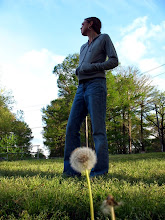+015.jpg)
+016.jpg)
+020.jpg)
Misadventures in Living "Naturally" in the City
+015.jpg)
+016.jpg)
+020.jpg)


 Well the baby chickens are growing up. This week they got their first taste of the sunshine. These chicks will reach maturity in about eight weeks.
Well the baby chickens are growing up. This week they got their first taste of the sunshine. These chicks will reach maturity in about eight weeks. enetic diversity of agricultural animals. By raising heritage breed birds it is possible to ensure the future of these animals which is being threatened by the industrial scale production of the Broad Breasted White.
enetic diversity of agricultural animals. By raising heritage breed birds it is possible to ensure the future of these animals which is being threatened by the industrial scale production of the Broad Breasted White.
The Rodale Institute has been influential in promoting active composting. Composting is the decaying process whereby organic materials are transposed into a rich humus soil by microbes and insects. Compost can be used to help revitalize soil that has been overfarmed. As part of the lecture series, we reviewed the basics of composting and received Earth Builders, backyard composters. Of course we won't be making 200 ft rows of compost, but we have to start somewhere. We also got to see the Rodale Institute's compost turner in action.
A composting tip - if you are wondering if your compost is finished, try the ziploc test. Put a shovelful of compost in a ziploc bag and leave it for 24 hours. When you come back, if it smells like earth, your compost is finished. If it smells bad or like sulphur, back to the pile!


 One of my favorite parts of attending farmers' markets is being able to ask the farmers questions about what they are growing. I was so excited for the market today, I could hardly sleep last night. Today I got to be the farmer!
One of my favorite parts of attending farmers' markets is being able to ask the farmers questions about what they are growing. I was so excited for the market today, I could hardly sleep last night. Today I got to be the farmer! Every morning when I get into work I walk by the chicken coop on the way to putting my lunch in the fridge. I am greeted by the excited sqwacking of many chickens. They know what time it is. Time to eat!
Every morning when I get into work I walk by the chicken coop on the way to putting my lunch in the fridge. I am greeted by the excited sqwacking of many chickens. They know what time it is. Time to eat! In other bird news, an orthonologist was consulted regarding the Bobolinks. It turns out that the farm is part of their migratory pattern, but they do not nest on the Eastern Shore. Due to this Spring's unusual weather pattern, they stayed around a little longer this year. Problem solved. Theresa mowed down the yellow clover today.

 This weekend the farm had an open house so that members of the community could come and see some of the things that are living and growing at the farm. Despite the rain, almost thirty people came out to visit the farm.
This weekend the farm had an open house so that members of the community could come and see some of the things that are living and growing at the farm. Despite the rain, almost thirty people came out to visit the farm. The yellow sweet clover was planted to retain organic material while the land is in fallow. It is particularly good at helping to break up compacted soil and entices honeybees and other pollinators to the fields making it well suited to act as a cover crop. However, yellow sweet clover can be so successful that it can become an invasive weed if left to seed. The Bobolink nests in praries and grasslands and seems to have taken a liking to our clover field.
The yellow sweet clover was planted to retain organic material while the land is in fallow. It is particularly good at helping to break up compacted soil and entices honeybees and other pollinators to the fields making it well suited to act as a cover crop. However, yellow sweet clover can be so successful that it can become an invasive weed if left to seed. The Bobolink nests in praries and grasslands and seems to have taken a liking to our clover field. During my internship, I am staying with a host family who are also members of the CSA. They have generously allowed me to live in their guest room for the season. The house is located on a 50 acre tree farm which borders the Sassafras River. I explored their property today. There is tons of wildlife. I saw a bald eagle.
During my internship, I am staying with a host family who are also members of the CSA. They have generously allowed me to live in their guest room for the season. The house is located on a 50 acre tree farm which borders the Sassafras River. I explored their property today. There is tons of wildlife. I saw a bald eagle.


